Activities
powering
Circular Bioengineering
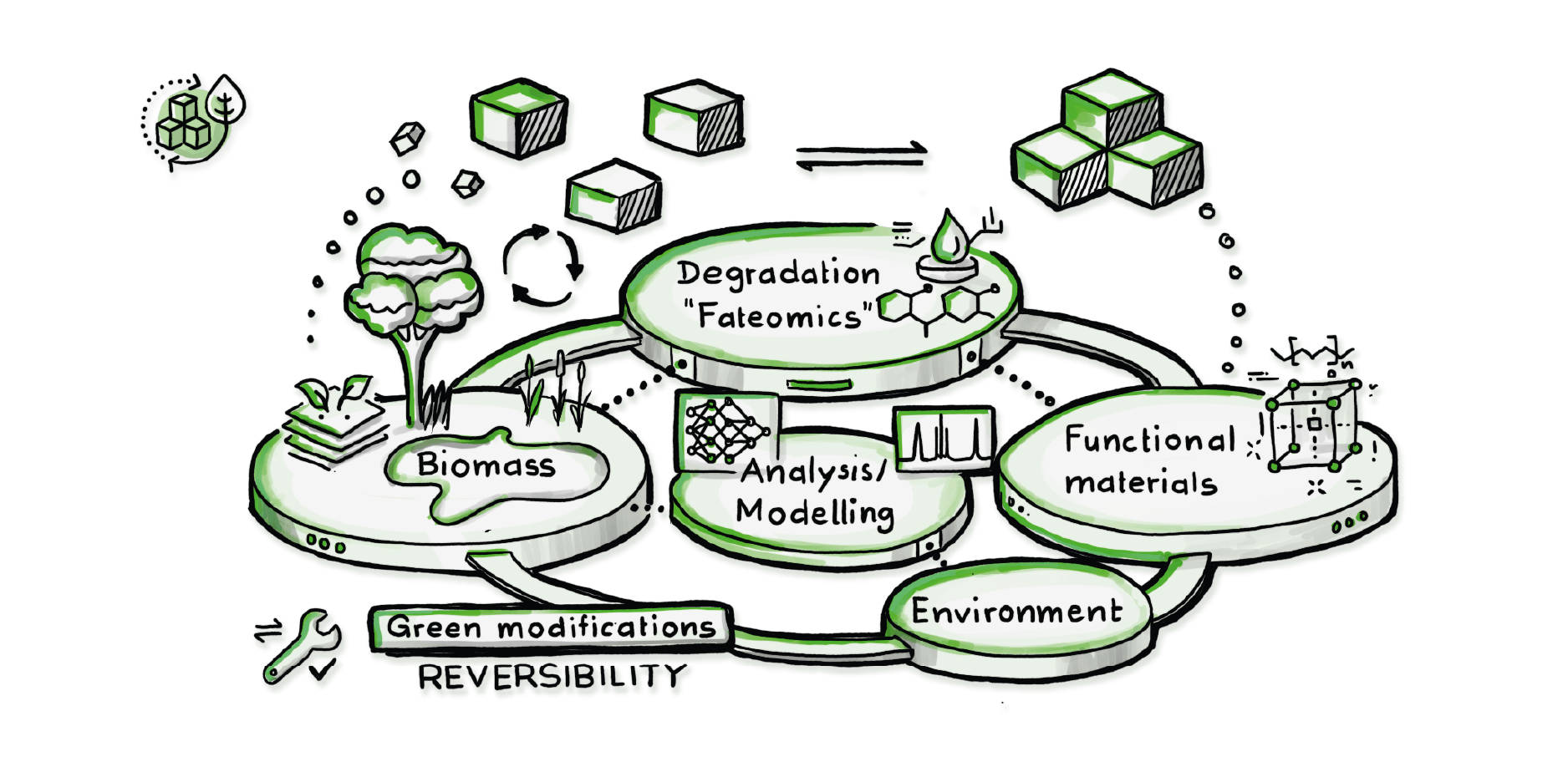
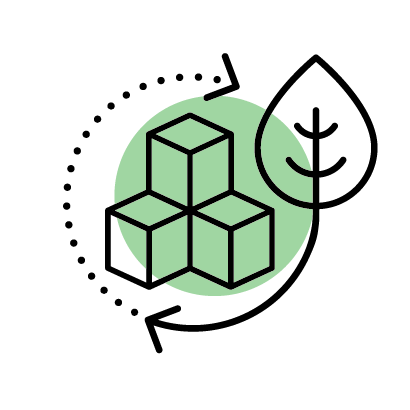
Program 1
Green Cycles of Renewable Materials
Bioeconomy concepts of feedstock utilization generally involve deconstruction of natural materials to a variable degree of completeness, leading to intermediates to be upgraded.
Bioeconomy concepts of feedstock utilization generally involve deconstruction of natural materials to a variable degree of completeness, leading to intermediates to be upgraded. Currently, most of the resulting product streams are used in non-environmentally friendly processes or are utilized as feedstocks in the formation of non-biodegradable materials, such as synthetic polymers.
After the service life of these materials, demodification and reversion back to a native or near-native state can then occur, producing biodegradable materials that are easily disposed of or reused, creating a truly circular bioeconomy. In case of products streams or functionalizations not conducive to reversion back to near-native states, these materials will serve as feedstock in green-on-green transformations, i.e., the use of white biotechnology for the further upcycling of such materials.
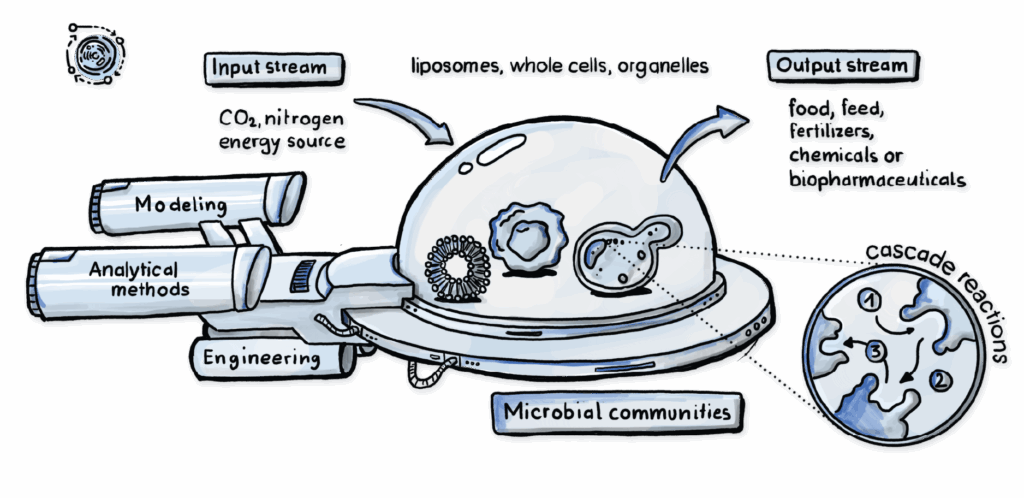
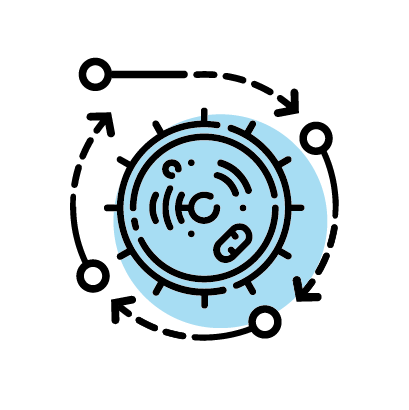
Program 2
Self-Sustainable Microbial Systems
Program 2 will set the foundation to shift microbial biotech production from a linear technology, consuming agricultural products as feedstocks, to a self-sustaining technology based on CO2, waste streams, or electricity.
Metabolic modeling will facilitate the design of the most carbon and energy efficient metabolic pathways. Metabolic driving forces and the flexible exchange of pathway modules will be empowered by compartmentation in native or synthetic organelles, and by the development of self-sustainable microbial communities.
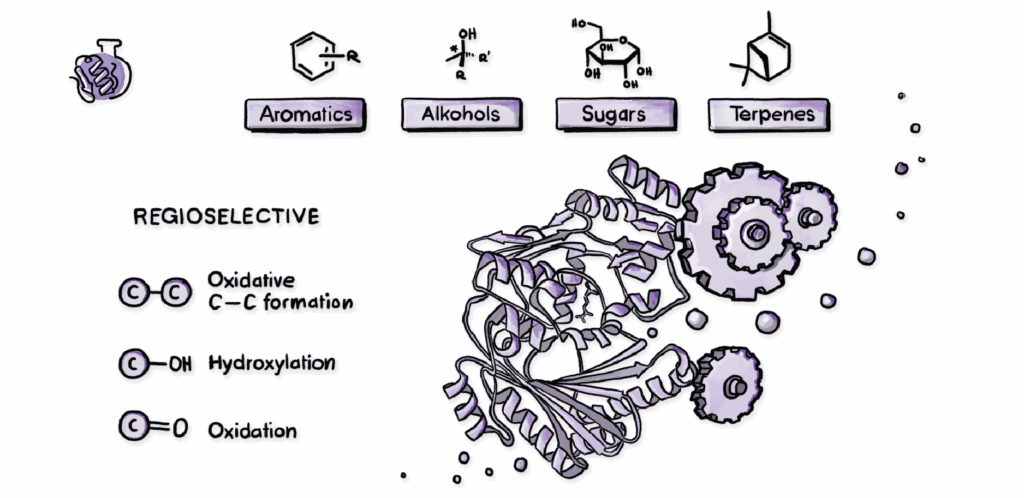
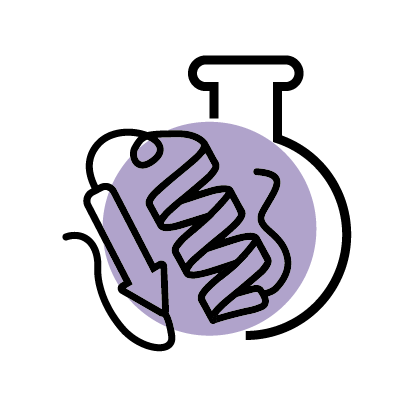
Program 3
Biocatalytic processes for sustainable synthesis
Program 3 will address challenges of organic chemistry to enable novel sustainable synthetic routes and to green the way how pharmaceuticals, polymer building blocks, surfactants, aroma compounds etc. are produced.
We focus here on basic research of regio-, chemo- and stereoselective oxidations, as well as photon- and electron-driven bioprocesses. We want to learn what controls and governs regio-, chemo- and stereoselectivity e.g., in oxidative C-C bond formation and how regio- and stereoselectivity of alcohol oxidation evolved when analyzing ancestral enzymes.
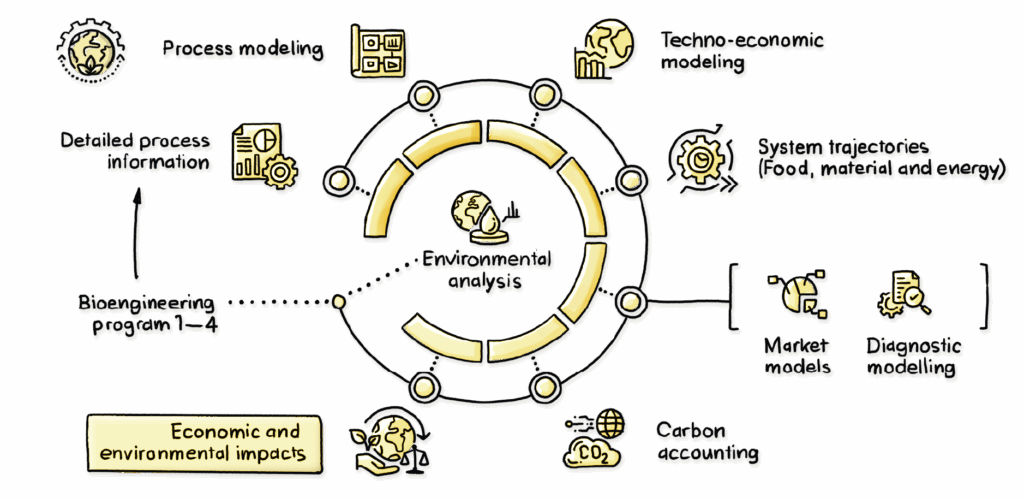
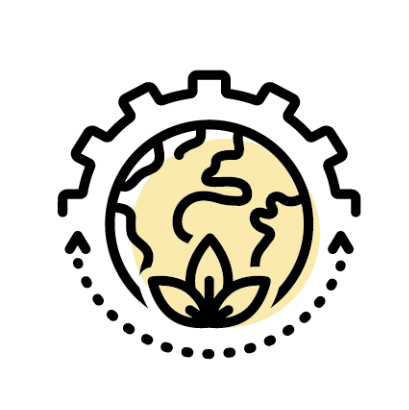
Program 4
Circular Prospects
Program 4 is dedicated to scrutinizing larger-scale sustainability aspects of Circular Bioengineering. It will provide the knowledge basis necessary to forge strategies that prevent negative sustainability impacts.
Outreach & Science communication
The Cluster of Excellence Circular Bioengineering is committed to connecting science with society through a diverse range of outreach measures and science communication activities. These initiatives aim to inspire, educate, and engage the public, stakeholders, and the scientific community, fostering a deeper understanding of sustainability, green chemistry, and circular bioengineering.
We also actively participate in renowned public science events such as “Lange Nacht der Forschung” and the European Researchers’ Night. These events feature hands-on workshops and interactive activities that illustrate our research and its significance for sustainability and green chemistry. Events like the Trash Fashion Event have already attracted thousands of participants, showcasing the public’s interest in innovative approaches to science and sustainability. Through events such as the “COE meets industry” series and active participation in the European Summit of Industrial Biotechnology (esib), the COE creates a platform for exchange between science, industry, and society.
